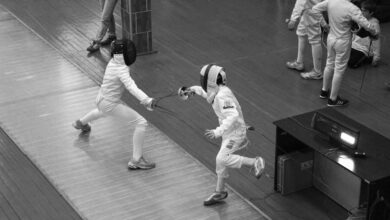The Clasico: A Symptom, Not an Anomaly

The final whistle at the Santiago Bernabéu felt less like the end of a match and more like the ringing of an alarm bell, echoing through the streets of Barcelona. What should have been a pivotal El Clasico, a chance to reignite a title challenge, instead delivered a sobering, almost brutal, reminder of where Barcelona truly stands. “Overrun and out-thought” doesn’t quite capture the full extent of the afternoon; it was a tactical dissection, a stark exposé of vulnerabilities that have, if we’re honest with ourselves, been bubbling under the surface for quite some time. This wasn’t just a bad day at the office, a momentary lapse in concentration, or a stroke of bad luck. The Clasico mauling was no fluke, and Hansi Flick, the man now tasked with steering this behemoth, needs to act with unprecedented urgency or risk presiding over a season devoid of silverware.
The Clasico: A Symptom, Not an Anomaly
For any genuine football fan, watching Barcelona being so comprehensively beaten by their eternal rivals is unsettling. But for those who have paid close attention over the past year or two, the performance against Real Madrid wasn’t an isolated incident; it was merely the most high-profile manifestation of deeper structural and philosophical issues. The ease with which Real Madrid transitioned from defence to attack, the wide-open spaces in Barcelona’s midfield, and the lack of cohesive pressure all pointed to a team struggling with its identity.
Let’s talk about that midfield, for instance. Historically, Barcelona’s engine room has been its heartbeat, dictating tempo, controlling possession, and stifling opposition attacks. Against Madrid, it often looked disjointed, struggling to win second balls and offering little resistance to the likes of Valverde and Bellingham driving forward. This isn’t a new problem. We’ve seen moments of brilliance, yes, especially from the emerging young talents, but the consistent, dominant control that defined past Barça teams has been conspicuously absent in crucial moments against top-tier opposition. The defence, too, frequently found itself exposed, left to deal with numerical disadvantages or runners from deep that should have been picked up earlier. It wasn’t a matter of individual errors as much as a systemic vulnerability that Madrid, being the clinical machine they are, exploited ruthlessly.
Beyond the Scoreline: The Underlying Cracks
The beauty of football analysis often lies in looking past the immediate result. While a single Clasico defeat can be brushed off as ‘one of those days,’ the manner of this loss, combined with other patchy performances throughout the season against strong teams, suggests something more profound. It implies a team that, despite flashes of individual genius, lacks a consistent, robust tactical framework. There’s a fragility, an inability to consistently impose their will for 90 minutes, especially when the going gets tough. This is the inheritance Hansi Flick now carries, a legacy of a team that has lost some of its foundational principles and, perhaps, a degree of its competitive edge.
Hansi Flick’s Grand Challenge: Rebuilding While Running
The appointment of Hansi Flick generated a buzz, an air of anticipation for a return to high-intensity, aggressive football. Flick’s track record at Bayern Munich, particularly his treble-winning season, showcased a coach capable of instilling a clear philosophy and maximizing player potential. However, Barcelona is not Bayern Munich, and the circumstances he walks into are vastly different. He’s not inheriting a squad at its peak, nor one flush with cash for immediate, transformative transfers.
The Tactical Blueprint vs. Squad Reality
Flick’s preferred style demands exceptional physical conditioning, tactical discipline, and a high level of technical ability across the pitch. His high-press, counter-pressing system relies on players being in sync, anticipating passes, and suffocating opponents. The current Barcelona squad has talented individuals, certainly, but whether they collectively possess the consistent stamina and collective tactical understanding to execute Flick’s demanding vision remains a significant question mark. The midfield, as noted, needs more steel and control. The defence requires better organization and perhaps a reliable anchor. Upfront, while there’s flair, clinical finishing has often been inconsistent.
Moreover, Flick must navigate the club’s well-documented financial constraints. Significant spending on new players to fit his system is unlikely, meaning he must largely work with the existing roster. This requires not just coaching, but a deep understanding of each player’s potential, their current limitations, and how to adapt his grand plan to the realities of the squad at hand. It’s a testament to his coaching acumen if he can extract a high-performing system from a group that, in many areas, seems to lack the specific attributes his ideal XI would possess.
The Clock is Ticking: Why Quick Action is Crucial
The margin for error at Barcelona is virtually non-existent. A trophyless season isn’t just a disappointment; it can have cascading effects, impacting club morale, transfer market appeal, and ultimately, the financial health of the institution. With Real Madrid looking formidable and other European giants strengthening, the competition is fiercer than ever. Flick doesn’t have the luxury of a long bedding-in period.
His immediate priority must be to establish a clear tactical identity that the players can understand and execute consistently. This isn’t about wholesale changes overnight, but rather about honing a few core principles that provide stability and a clear direction. Can he simplify the defensive responsibilities, allowing the attacking talents more freedom? Can he find a midfield balance that offers both control and progression? These are critical questions that need rapid answers.
Beyond tactics, Flick also needs to address the psychological aspect. The pressure at Barcelona is immense, and confidence can quickly erode after big defeats. Instilling a winning mentality, fostering belief, and ensuring every player understands their role and the non-negotiable standards of the club will be paramount. This means making tough decisions, setting clear expectations, and ensuring that any residual complacency is eradicated. The transfer window, despite its limitations, will also offer a chance for strategic adjustments – perhaps a shrewd loan or a budget-friendly acquisition that addresses a glaring need, rather than a blockbuster signing. Every decision, every training session, every selection will be scrutinized.
The Path Forward: A Call to Action, Not Despair
The Clasico defeat was a painful but necessary wake-up call. It stripped away any lingering illusions and laid bare the task ahead for Hansi Flick and Barcelona. This isn’t a moment for despair, but for decisive action. The ingredients for success are still there – a storied history, an incredible fan base, and a wealth of young talent. What’s needed now is a unifying vision, a clear tactical blueprint, and the unwavering commitment to execute it. Flick has been handed a monumental challenge, but also an incredible opportunity to reshape one of the world’s biggest clubs. How he responds to the mauling, and the speed at which he implements his solutions, will undoubtedly define not just his tenure, but Barcelona’s immediate future. The time for deliberation is over; the time for transformation is now.





